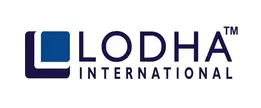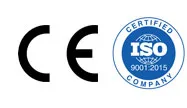Get in touch! +91 9687731331 | +91 9687631331 | info@lodhapharma.com
Nigeria Pharmaceutical Industry - Challenges and Opportunities
As per the forecast, the Nigeria Pharmaceutical Industry is estimated to grow at a CAGR of 9.1% and reach $5.3 Billion by the year 2024. Until the mid 20th century, many developing countries of Africa like Nigeria imported finished pharmaceutical products from multinational pharmaceutical companies or wealthy private entrepreneurs. There was a lack of attention for the local production of raw materials and processing equipment. However, now the trend has changed and some important aspects such as local production of dosage and processing equipment are getting more attention. Currently, Nigeria imports a large proportion of dosage forms from India, the USA, Chine, Europe, Taiwan, and Brazil. But, the government is trying to encourage local manufacturing.
Features of the Pharmaceutical Industry in Nigeria
The Nigerian economy is much consumer-oriented because of the unstable social and political environment created by crime and corruption. As a result, all the industries, including the pharmaceutical industry, have the same characteristics.
The pharmaceutical industry in Nigeria imports a high percentage of processed raw materials. In addition to that, heavy machines and equipment used in the pharmaceutical industry are manufactured overseas and imported to Nigeria. The Nigerian pharmaceutical market is vast due to the high population and the labour is very cheap.
Pharmaceutical Industry Challenges in Nigeria
There are several challenges faced by the pharmaceutical industry in Nigeria. The unfair competition by the imported products and multinational companies is one of the biggest challenges in the pharmaceutical industry in Nigeria. In addition to that, there is a need to standardize several herbal origin drugs circulating in the country. Even after so many years, the government is unable to control illegal importation and sale of fake substandard goods. The shortage of genuine drug products is also a big challenge. The major reasons behind that is the shortage of trained pharmacist and lack of production of pharmaceutical-grade raw materials in bulk.

Some unfair government policies for pharmaceutical companies and pharmaceutical machinery manufacturers are also acting as roadblocks for the growth of the pharmaceutical industry in Nigeria. Moreover, the reliability of water, power and environmental controls are also some of the factors which are not in favour of pharmaceutical companies and pharmaceutical machinery manufacturers in Nigeria.
These challenges mean that traditional way of entering the pharmaceutical market may not be effective in Nigeria. All the pharmaceutical companies should gain knowledge of local patients journey and develop solutions for them.
Opportunities in Nigerian Pharmaceutical Industry
Some small scale native private labs and research institutes are now competing with foreign companies. With continuous training of more pharmacists, the reliability of good quality products manufactured in Nigeria has increased. There are many growing local industries producing good containers that can be used in the pharmaceutical industry.
It is clear that there are several roadblocks in the growth of the pharmaceutical industry in Nigeria. The government has an important role to play in its growth by improving infrastructure, policies, security and business environment for pharmaceutical companies and pharmaceutical equipment manufacturers.

